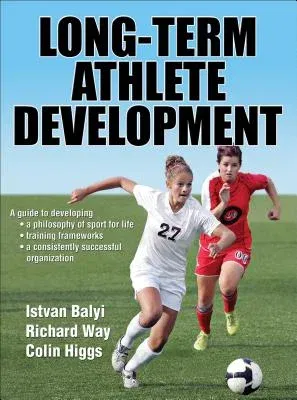Long-Term Athlete Development describes how to systematically develop
sporting excellence and increase active participation in local,
regional, and national sport organizations. This resource describes the
long-term athlete development (LTAD) model, an approach to
athlete-centered sport that combines skill instruction with long-term
planning and an understanding of human development. By learning about
LTAD, sport administrators and coaches will gain the knowledge and tools
to enhance participation and improve performance and growth of athletes.
This text offers the first in-depth and practical explanation of the
LTAD model. Long-Term Athlete Development integrates current research
on talent development and assessment into practice to help sport leaders
plan athletic development across the life span or design detailed
programs for a particular group, including those with physical and
cognitive disabilities. Authors Balyi, Way, and Higgs--pioneers and
veteran LTAD facilitators--critique current talent development models,
discuss the limitations of the LTAD model, and demonstrate the benefits
of LTAD as a new approach. By integrating knowledge of these models,
readers are able to analyze their own programs and take steps to improve
sport and coaching philosophies and reach adherence and performance
goals.
Explanations and visuals of concepts help readers understand the state
of knowledge in talent identification and long-term athlete development.
Chapter-opening vignettes offer examples of how the LTAD model can be
used to alleviate common issues. Listings at the end of each chapter
offer sources for further study, and reflection questions guide readers
in applying the content. The text offers a logical presentation of
current research:
- Key factors that guide and shape the LTAD model, such as physical
literacy, the differences between early- and late-specialization sports,
and variations in trainability across the life span
- Information on the time needed to develop excellence in sport and how
periodization of training is related to the developmental stage of the
athlete
- The seven stages of LTAD, from development of fundamental movement
skills to training for elite competition and the transition to lifelong
physical activity
- Considerations in the development of optimal programs for
participants passing through each of the seven stages
Long-Term Athlete Development is an essential guide to improving the
quality of sport, developing high-performance athletes, and creating
healthy, active citizens. It offers parents, coaches, and sport
administrators a deeper understanding of the LTAD model, helping them
create an enjoyable, developmentally appropriate environment for both
competitive athletes and enthusiastic participants.

